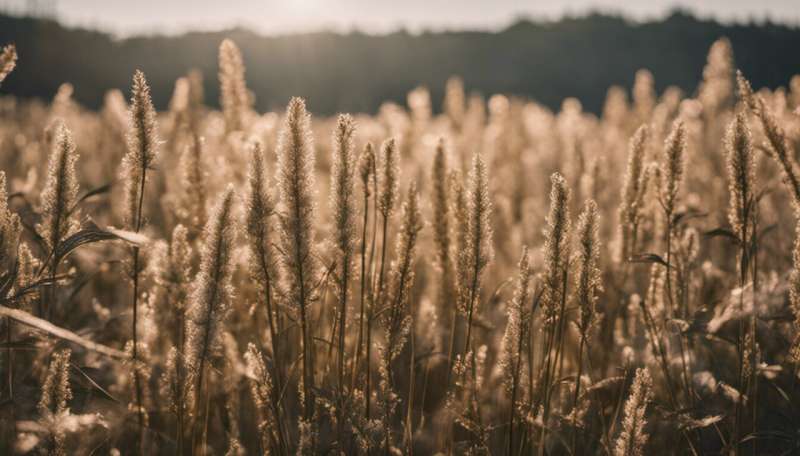Indigenous crops may help us survive climate change, but how we talk about them matters

We need to rethink how we think about Indigenous crops, say Carnegie plant biologists. These crops include groundnut, teff grass, and a wide range of cereals, grains, fruits, legumes, and root vegetables predominantly cultivated by small farms in Africa, Asia, and South America.
In a recent essay in Trends in Plant Science, Carnegie's William Dwyer and Sue Rhee argue for the importance of anti-colonial language, as Western scientists develop an interest in regional crops that have been cultivated for generations by local farmers around the world. They were joined by collaborator Carol Ibe of the JR Biotek Foundation, a grassroots organization dedicated to empowering African communities that have limited access to scientific resources.
Indigenous crops are traditionally referred to as "orphan crops," because they do not play a significant role in the global agricultural economy. Dwyer, Ibe, and Rhee argue that this terminology and other, similar language such as "neglected crops" and "forgotten crops" assume a colonial perspective, and diminish the crucial role in nutrition and trade that these staples have played for generations in the areas where they are cultivated.
"The term 'orphaned' overlooks the important stewardship roles played by generations of farmers, who have kept these crops healthy and productive to feed their communities," said Dwyer, a Research Assistant at Carnegie's Department of Plant Biology. "By contrast, the word 'Indigenous crop' addresses the longstanding transfer of knowledge underpinning the domestication of these plants, which are crucial to feeding people in many parts of the world."

Because Indigenous crops are uniquely adapted to their local environments, they are often tolerant of challenging surrounding conditions and boast vast reservoirs of genetic diversity, which is important to a plant's ability to adapt to climate change.
Due to this stress-resistance-ability, Indigenous crops have recently attracted interest from Western scientists and plant breeders as a possible source of genetic traits that could help buffer major agricultural plants against the warming trend and precipitation changes associated with a changing climate.
"Plant science is going to be key to keeping the world fed, as the climate shifts," said Rhee. "As these research efforts move forward, it is crucial that when we draw on the promise of Indigenous crops to help address the coming challenges, plant biologists and other experts recognize, acknowledge, and collaborate with the cultures and countries that have preserved them for thousands of years."
In addition to climate concerns, global conflicts such as the war in Ukraine threaten wheat imports to the Global South. Enhancing and conserving Indigenous crops could help bolster these regions against resulting food shortages.
More information: William Dwyer et al, Renaming Indigenous crops and addressing colonial bias in scientific language, Trends in Plant Science (2022). DOI: 10.1016/j.tplants.2022.08.022
Journal information: Trends in Plant Science
Provided by Carnegie Institution for Science





















